The content of the article
- 1 The basic rules of nutrition for future mothers
- 2 Healthy nutrition in the first trimester of pregnancy
- 3 Second trimester nutrition
- 4 Proper nutrition in the third trimester of pregnancy
- 5 Features of fluid intake during pregnancy
- 6 What danger can be concealed in food during pregnancy?
- 7 Sample menu of a pregnant day
- 8 Video: how to eat during pregnancy
The favorable course of pregnancy, the birth of a healthy and strong child is determined by several factors. One of the most important is proper nutrition. It depends on its organization whether the crumb will be supplied with all the nutrients and vitamins important for the development. Therefore, the question of how to eat during pregnancy is very important for any woman who is in an interesting position.
The basic rules of nutrition for future mothers
Adhering to the basic rules of nutrition for all 9 months, future moms will be able to supply the child with everything they need and not give him anything extra.
- The most important rule - no diets, alcohol and other addictions;
- The diet of a pregnant woman must contain dairy products, various cereals, fruits, vegetables and eggs;
- To eat 5-7 times a day;
- The amount of food should not increase in volume, it just has to become better several times;
- To exclude from the menu smoked meat, salinity and spicy dishes;
- It is better to give preference to products that our grandmothers ate;
- Drink water regularly;
- Eat without rushing, chewing carefully;
- Do not forget to eat fish and poultry. But from red meat, if possible, it is better to abstain;
- Purged, preferably baked, braised or boiled;
- If a pregnant woman really wants something, even if not very useful, then you can eat it just a little bit.
The last meal should be done 3 hours before bedtime. If the feeling of hunger cannot be overcome, you can kill him with a glass of kefir or milk, an apple or a pear.
Important! Expectant mothers should remember one very important thing: because of the dinner table, it is best to go out with a slight feeling of hunger than with a feeling of heaviness in the stomach from overeating.
Healthy nutrition in the first trimester of pregnancy
Each trimester of pregnancy has its own nuances in matters of nutrition.
The first trimester (11-13 weeks) is the period when the formation of the main organs and systems of the baby is carried out. It is especially important to take care of a balanced diet at the moment.
During these periods it is very important to eat foods with a large percentage of folic acid (vitamin B9). An insufficient amount of this vitamin can lead to premature birth, mental abnormalities of the fetus. Contains B9 in dairy products, fruits, vegetables, fish, meat.
The fifth week is a critical moment for an organism that is actively rebuilt. You may experience a deterioration of health, increased drowsiness, nausea, vomiting. To combat the manifestations of toxicosis, preferably by natural means.
The unpleasant moment passed, and now it is important to take care of the presence in the diet of calcium and phosphorus, which are contained in sufficient quantities of dairy products.
To prevent the expansion of veins in the chest, you should strengthen the walls of blood vessels, including in the diet foods containing in excess vitamins C and P.We are talking about citrus fruits, hips and black currants, buckwheat, sweet cherries.
As the volume of blood plasma and the number of erythrocytes increases, it is necessary to include cottage cheese in the diet. It is this product, which is a source of iron, is able to increase the number of red blood cells. In addition, a woman in these periods should eat meat, fish, milk, herbs, fruits.
Do not do this trimester without such products as meat, cheese, nuts, broccoli, spinach, eggs, leafy greens. The definitive taboo on alcohol and cigarettes.
Second trimester nutrition
For the second trimester of pregnancy is characterized by problems of another plan. Meals should be built in such a way that they can be solved. Now the future mom should eat in small portions, but more often.
There is a possibility of deterioration in digestion for two reasons:
- the development of dysbiosis;
- the volume of the uterus increases and compresses the organs of the abdominal cavity.
Chances of constipation are high, and it is prohibited to get rid of them with ordinary laxatives. Fruits, vegetables and herbs will come to the rescue.
Pregnant women need to monitor the amount of carbohydrates taken, otherwise there is a high probability of seriously gaining weight.
Nutritional characteristics of the second trimester:
- It is advisable not to eat foods with high cholesterol levels, as it prevents the liver from working normally. Caution should be exercised when eating beef liver, caviar, various sausages, lard, cheese, and various pastries.
- Restrict the intake of oily, salty and allergenic products. Every day, the menu should contain low-fat cheese, milk, cottage cheese and kefir - components enriched with calcium. After all, the future mommy is able to wash out of the body, while the baby is vital for the formation of the skeletal system. Inadequate intake of calcium with foods is allowed to replenish with the help of vitamin complexes.
- It makes sense to begin to gradually prepare for the third trimester, reducing fluid intake.
Proper nutrition in the third trimester of pregnancy
In this trimester, future moms most often suffer from pathologies associated with intestinal activity, namely constipation,diarrhea In this regard, nutrition is of particular relevance in accordance with the scheme: eat more often, but little by little. This problem can be avoided if you increase the consumption of plant fibers, in particular, fiber.
Do not forget about the consequences of excessive passion for flour and fatty foods in the last terms. Such rashness can lead to unpleasant consequences, in particular, an increased fetus size. Because of this, the process of childbirth can become more difficult.
In the third trimester, you must follow strict rules:
- The volume of fluid used must be reduced in order not to encounter the problem of late toxicosis and the appearance of edema.
- The implicit rule for future mothers in these periods should be the measurement of the volume of fluid at the “inlet” and “outlet”. A difference of no more than 200 ml is allowed.
- In order to positively affect metabolic processes and improve the removal of excess fluid from the body, you should limit salt intake.
- Completely exclude fatty broths (both meat and fish), concentrated gravy. It is better to switch to vegetarian soups, milk sauces, boiled meat, fish.
- Dishes from mushrooms should, if not completely excluded, then at least be limited. Eating animal fats to leave until better times. You can only a little butter. About fat, pork, beef and lamb will have to forget for a while.
- Cooking allowed only on vegetable oil. At least once a week, the expectant mother is recommended to arrange a fasting day (you can only take yogurt or apples).
- At the very last month, completely eliminate fatty foods and flour products from the diet, reduce the consumption of sugar, honey, jam.
Important! A woman who is expecting a child should protect herself from the likelihood of poisoning. She is advised to temporarily forget about any pate, raw or boiled boiled eggs, insufficiently heat-treated meat and dishes containing raw eggs.
Features of fluid intake during pregnancy
According to modern medicine, women who are in an interesting position should drink in moderation. They are recommended to use at least 2 liters of liquid per day. Water contributes to the removal of toxins from the body and prevents the formation of kidney stones.
It is equally important to choose the right drinks.To eliminate soda, especially with dyes, it is better to opt for plain water. If you want to drink something tastier, you can be content with juice, but only natural.
Caffeinated beverages during pregnancy should be consumed wisely. Black or green tea can drink no more than 2 cups per day. But on the black strong coffee in general will have to forget. If the future mom is used to this drink, then it should be abandoned gradually, reducing its strength.
Do not brew and herbal teas. Many plants have an abortive effect, which a woman can not guess. The well-known carcade (hibiscus) is exactly that.
What danger can be concealed in food during pregnancy?
However, food during pregnancy can be fraught with a certain threat.
- There is a special danger for future moms to overeat, especially in recent periods. The fact is that the load on the liver during pregnancy increases, and overeating only strengthens it. As a result, the body is able to respond to this fact with signs of intoxication. As a result, the woman begins to feel sick, vomiting, weakness occurs.For a long time, vomiting is dangerous because it can cause spasms not only of the stomach, but also of other organs. As a result, there is a likelihood of preterm labor.
- It is necessary to refuse the use of salty food. An abundant amount of salt can provoke venous congestion and the appearance of edema - a very dangerous pathology for late periods.
- Exotic dishes for pregnant women are not the best option. They can cause gastrointestinal disorders or the occurrence of allergies.
- It is strongly recommended to refrain from eating vegetables and fruits of early harvest, because they usually contain hazardous chemical components.
- It is advisable to avoid eating foods that are strong allergens. Subsequently, this may cause the development of allergic reactions in your baby. Absolutely refuse them does not make sense, just do not abuse.
- Do not eat raw fish, sushi, oysters, clams. In this way, it is possible to avoid the ingestion of harmful viruses or bacteria. Smoked seafood is also not worth eating.
- Hot dogs, street meat dishes pose a certain danger.As a rule, they are the source of the development of listeriosis.
- Unpasteurized milk is also contraindicated for expectant mothers, as it can cause the development of foodborne diseases.
Sample menu of a pregnant day
An approximate 6-time menu for a pregnant woman might look something like this:
- Breakfast - a sandwich of black bread with a piece of butter, chicken egg, 200 gr. kefir.
- The second breakfast - green salad, tea.
- Lunch - Chicken fillet, boiled potatoes, pear, kefir or yogurt drinking - 1 cup.
- Safe, - Sandwich with butter or jam, juice.
- Dinner - Rice (preferably brown), boiled fish, vitamin salad from vegetables, tea.
- The second dinner is a glass of kefir or some kind of fruit.
Pregnancy is a great reason to change your taste tastes. Before you eat something, it is important to remember that now you eat not only for yourself, but also for the crumbs that you wear under your heart and for which you are now responsible.
Video: how to eat during pregnancy







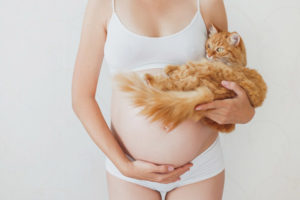
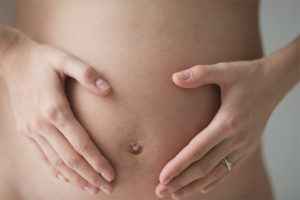

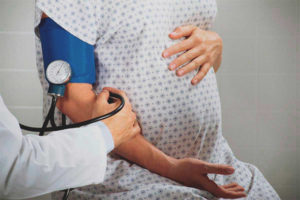
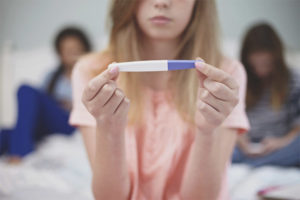
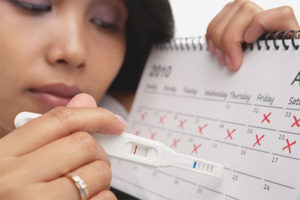

To send